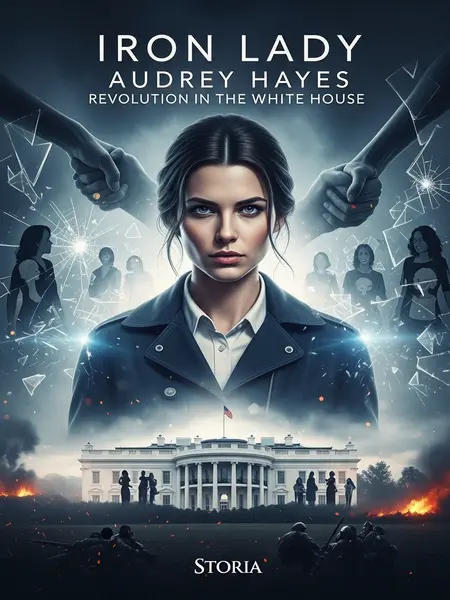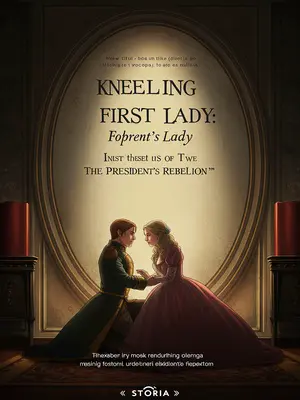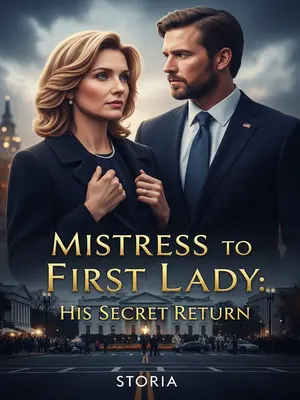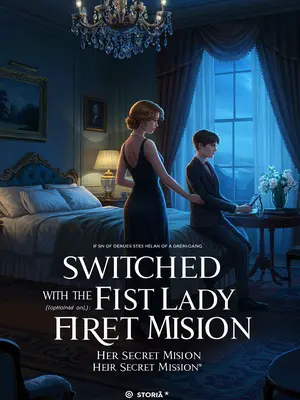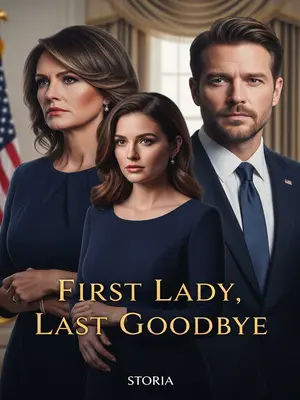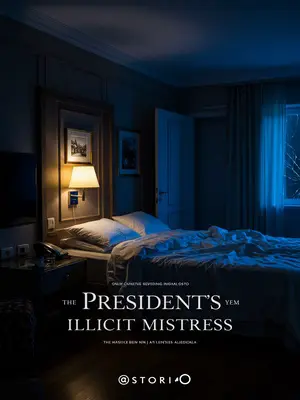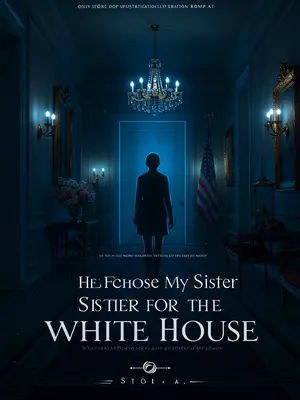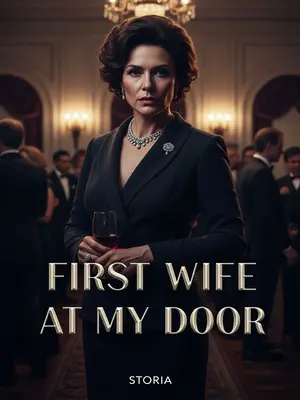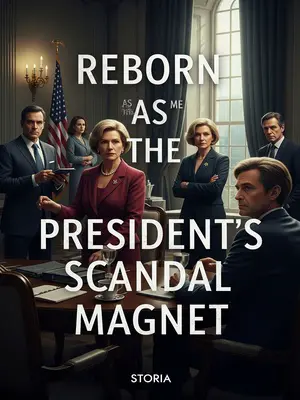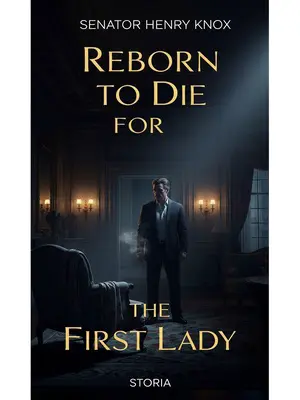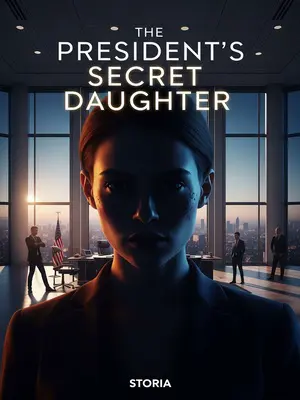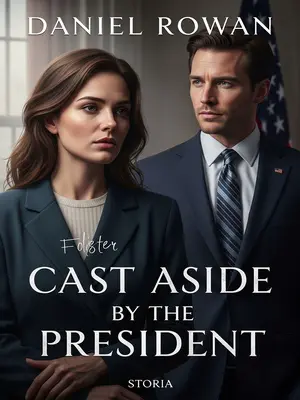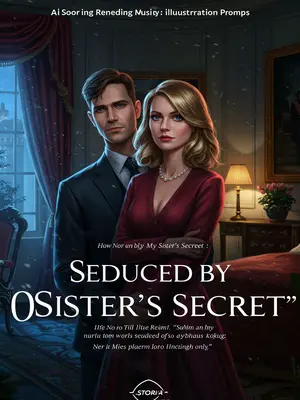Chapter 2: Drowning in Destiny
The setting sun poured into the Oval Office, golden light, white marble, and blood weaving together into a dreamlike tapestry. I watched Henry Callahan clutch his throat, murmuring something incoherent.
The light glinted off the blood on the carpet, turning everything surreal, almost beautiful in its violence. I felt the hush of dusk settle over the city, as if the world itself was holding its breath, waiting for the next chapter.
Too many died today—my eyes were heavy with fatigue. I gently closed them, recalling the shape of Henry’s lips as he spoke. He said, Why. And—do you love me or not?
The question haunted the silence. I let the memory drift, a wisp of smoke curling in the last rays of sun.
How ridiculous. He caged me like a bird, and I used him as a rung on my ladder to the clouds. Victory and defeat—nothing more than that.
That’s the truth of power: it’s never about love, only about who’s willing to pay the price. I opened my eyes, gaze hard as steel, and let the past burn away behind me.
---
Yes, I am someone who remembers the future.
Sometimes I wonder if that’s a blessing or a curse. But it’s the only weapon I trust more than my saber.
This memory began when I entered D.C. as the study buddy of a senator’s daughter. Some jealous kids, envious of my sudden favor, pushed me into the Lincoln Memorial Reflecting Pool. In March, the water in D.C. was still icy cold—the kind that bites through your coat and chills your bones. Soon, its needle-like chill numbed my will, and I just stopped struggling, letting the heavy water drag me under. Above, I could hear the distant shouts of tourists and the rush of the Potomac wind, but it all felt far away.
I remember the sting of the cold, the panic in my lungs, the muffled sounds above the surface, the rough texture of the marble steps as I slipped. Even as my vision blurred, I thought: is this how it ends? Not on a battlefield, but in a pool, at the hands of jealous kids?
I thought, maybe this way, I could see my mother again.
But no, I did not see my mother. Because I was still alive—I woke up coughing, surrounded by noisy voices and the blinding blue sky overhead.
The slap of hands on my back, the shouts of alarm, the bright sunlight stinging my eyes. I sputtered, spitting out water, my heart pounding with a strange, furious relief.
The first person I saw was Henry Callahan, his hair and clothes soaked, showing off his heroic rescue. I frowned slightly. I knew someone would save me; most in the White House wouldn’t dare let me die. After all, in their eyes, I was their only bargaining chip to control the Midwest General.
I looked up at Henry, his face beaming with pride, expecting gratitude. I felt only annoyance. The world spun, and I wondered if I’d ever feel safe again.
Unexpectedly, it was him—a President’s son?
But thinking that he was an unfavored son, it made sense. The President must be secretly pleased.
Henry saw my frown and gently asked, “Audrey, you okay? Hey, you’re alright. I’ve got you.”
He spoke softly, his voice warm and reassuring.
He didn’t know that I frowned because I had to face this dreadful world again.
But his voice was gentle, each word soothing my dazed mind, and soon enough, I fainted.
Before darkness fell, I was still thinking: Henry Callahan is really too familiar.
What a tormenting period, as if I never escaped those layers of pond water, floating and sinking within.
Amid the lingering scent of antiseptic and the hum of hospital machinery, I kept dreaming—a dream that made my heart ache.
In the dream, I later married Henry Callahan, becoming his woman on the couch, his strategist in the war room, his general on the battlefield. For him, I risked my life, thanked him for his love and attention. Even if he had a thousand beauties in his circle, I only wanted him to care for me. In the end, I didn’t even become First Lady. After helping him pacify the country, I was poisoned, framed, miscarried, sent to a psychiatric hospital, and finally withered away, dying alone in a locked ward, my bones left unclaimed.
The nightmare played out in excruciating detail, every humiliation sharp as broken glass. I woke each time gasping, the taste of betrayal bitter on my tongue.
What a nightmare.
So when I woke up and saw Henry’s face, I only felt a heavy gloom and nausea.
At first, I really thought it was just a nightmare—just a bit too detailed and long.
Until the President, delighted, issued an order, naming me Special Envoy Audrey Hayes and arranging for me to marry the Third Son, Henry Callahan.
The White House was abuzz with the news, staff whispering in the hallways, the air thick with political calculation and the glow of CNN on every television. I kept my face neutral, heart pounding with dread.
As I knelt to receive the order, my body involuntarily stiffened, but I calmly accepted it. Opening it, I saw the words “Special Envoy” embossed in gold, exactly matching the dream.
